Shimane Prefectural University Junior College is part of Shimane Prefectural University, located in Shimane Prefecture, Japan. The junior college provides two-year vocational education, aiming to cultivate technical talents with professional knowledge and practical ability. The following is a detailed introduction to Shimane Prefectural University Junior College, including its history, subject settings, educational characteristics, campus facilities and other information.
Basic information
Name: Shimane Prefectural University Junior College
English name: Shimane Prefectural University Junior College
Abbreviation: Shimane Junior College
Address: 1060 Tonomachi, Matsue City, Shimane Prefecture
Established: 1963
Type: Public Junior College
History
1963: Shimane Prefectural Junior College was established, initially with a home economics department.
1988: Comprehensive cultural department was added.
2007: Shimane Prefectural Shimane Women's Junior College and Shimane Prefectural Nursing Junior College merged to become part of a comprehensive university operated by the public university corporation Shimane Prefectural University.
2010s: Gradually expand the scope of education, add new disciplines and research directions, and improve the quality of education and internationalization level.
Discipline Settings
The Junior College of Shimane Prefectural University has the following disciplines, mainly focusing on comprehensive culture, health and nutrition, childcare, and nursing. The specific discipline settings are as follows:
Comprehensive Culture Discipline
Aims to cultivate talents with broad humanities and professional skills. The course content covers literature, art, social sciences and other fields.
Health and Nutrition Discipline
Aims to cultivate professionals with nutrition knowledge and practical ability. The course content includes nutrition, food hygiene, clinical nutrition, etc.
Childcare Discipline
Aims to cultivate professionals with knowledge of early childhood education and childcare. The course content includes child psychology, childcare practice, and educational methods.
Nursing Discipline
Aims to cultivate professionals with nursing knowledge and practical ability. The course content includes basic nursing, clinical nursing, nursing ethics, etc.
Educational Features
Practical Education: Emphasizes the combination of theory and practice, provides rich internships and practical activities, and helps students accumulate practical work experience.
International Education: Actively promote international education, establish cooperative relations with universities in many countries, and provide overseas exchange programs.
Professional training: Focus on students' professional skills training, and cultivate professionals with solid theoretical foundation and practical ability.
Career support: There is a special career guidance center to provide services such as career planning, employment consultation and internship recommendation.
Campus facilities
Library: It has rich book resources and a modern reading environment.
Laboratory: Equipped with advanced experimental equipment to support scientific research and practical teaching.
Sports facilities: Including gymnasiums, sports fields, etc., to promote students' physical and mental health.
Student dormitories: Provide comfortable accommodation environment to facilitate students' life and study.
Research Center
Comprehensive Cultural Research Center: Focus on research in the field of comprehensive culture.
Health and Nutrition Research Center: Research issues in the field of health and nutrition, and provide intellectual support for local development.
Childcare Research Center: Research issues in the field of early childhood education and childcare, and provide intellectual support for local development.
Nursing Research Center: Research issues in the field of nursing, and provide intellectual support for local development.
Student activities
Club activities: There are a variety of student clubs covering academic, cultural, sports and other fields.
Volunteer activities: Encourage students to participate in community services and social welfare activities to cultivate a sense of social responsibility.
Admission requirements
Entrance examination: usually includes written test and interview. Please refer to the school's official website for specific requirements and procedures.
International students: International students are accepted, and they must meet language proficiency and other relevant requirements.
Ranking
National ranking:
According to the 2023 Japanese Junior College Ranking, Shimane Prefectural University Junior College Department has outstanding performance in comprehensive culture, health and nutrition, conservation and nursing.
Nationally, Shimane Prefectural University Junior College Department ranks in the top 100 in the comprehensive ranking of public junior colleges.
Contact information
Tel: +81-852-21-7111
Fax: +81-852-21-7112
Email: admission@shimane-u.ac.jp
School motto
Spirit of the school: To cultivate talents with high professional qualities and practical abilities, and to contribute to the development and progress of society.
Educational philosophy: Focus on the cultivation of comprehensive qualities and professional knowledge, and strive to cultivate talents with social responsibility and leadership.
Special courses
Comprehensive culture course: A special "comprehensive culture course" is set up to cultivate students' broad humanistic qualities and professional skills.
Health and nutrition course: A "health and nutrition course" is provided to help students master the knowledge and skills of nutrition and food hygiene.
Childcare course: A "childcare course" is provided to help students master the knowledge and skills of early childhood education and childcare.
Nursing course: A "nursing course" is provided to help students master nursing knowledge and practical skills.
Employment situation
Employment rate: The employment rate of graduates of Shimane Prefectural University Junior College is high, and many graduates have found satisfactory jobs in the fields of education, medical care, health and welfare.
Notes
Reputation: Shimane Prefectural University Junior College enjoys a good reputation in Shimane Prefecture and throughout Japan, especially in the fields of comprehensive culture, health and nutrition, childcare and nursing.
Continuing education: Graduates can choose to continue their studies in undergraduate or graduate schools, or they can directly enter the workplace.
The above is a basic introduction to Shimane Prefectural University Junior College. If you have more specific questions or need detailed information, it is recommended to visit the school's official website or contact the relevant department of the school directly.
-
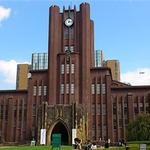
The University of Tokyo
-
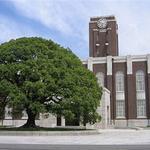
Kyoto University
-
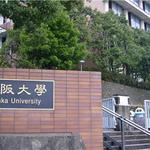
Osaka University
-
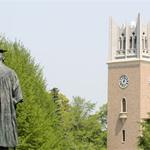
Waseda University
-
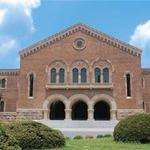
Hitotsubashi University
-
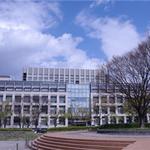
Nagoya University
-
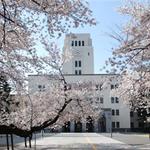
Tokyo Institute of Technology
-
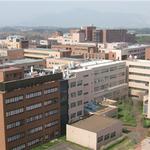
University of Tsukuba
-
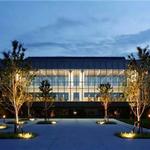
Keio University
-
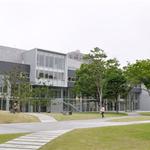
Tohoku University
-

Mesoamerican University
-

Istmo University
-

Mariano Galvez University of Guatemala
-

Regional University of Guatemala
-

Galileo University
-

Francisco Marroquín University
-

Rafael Landívar University
-

University of the Valley of Guatemala
-

University of San Carlos of Guatemala
-

Technological Institute of Tlaxcala Plateau
-

Golfo University
-

Technological University of South Sonora
-

Technological University of Huejotzingo
-

Tizimín Institute of Technology
-

Chilpancingo Institute of Technology

